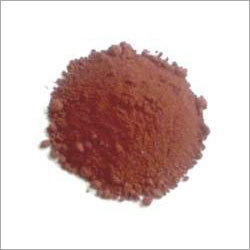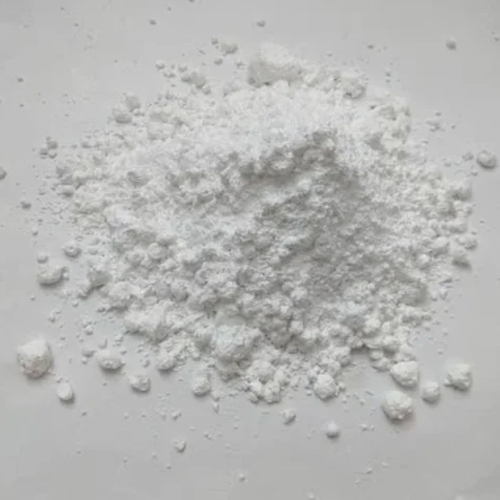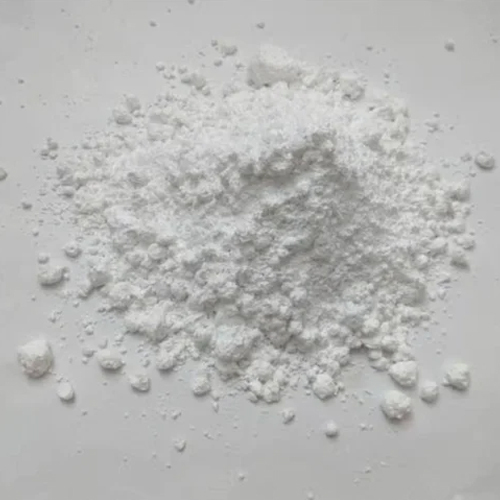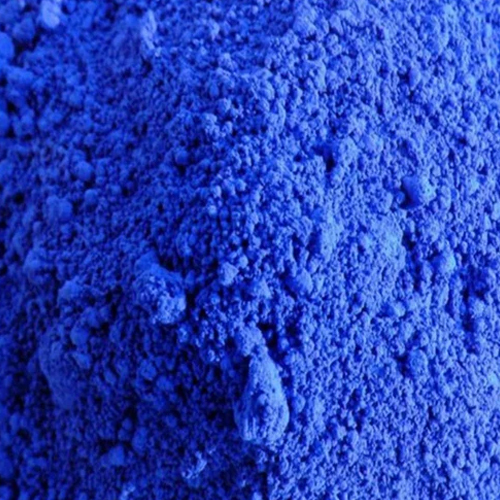Vermiculite 'Raw
Vermiculite 'Raw Specification
- Density
- 150 Gram per cubic centimeter(g/cm3)
- Molecular Weight
- Variable depending on composition
- Other Names
- Hydrated magnesium aluminum silicate
- Storage
- Store in a dry area to prevent moisture absorption
- HS Code
- 2530
- Melting Point
- Over 1350C
- Form
- Raw loose
- Smell
- Odorless
- Solubility
- Insoluble in water
- Structural Formula
- Layered phyllosilicate
- Boiling point
- Not applicable (decomposes)
- Refractive Rate
- 1.541.61
- Shape
- Granular/flake
- Molecular Formula
- (Mg,Fe,Al)3(Al,Si)4O10(OH)24H2O
- Purity
- Typically 90%
- Taste
- Tasteless
- Ph Level
- Neutral (approx. 7)
- Poisonous
- Yes
- Classification
- Phyllosilicate mineral
- Chemical Name
- Vermiculite
- CAS No
- 1318-00-9
- EINECS No
- 238-259-2
- Grade
- Industrial
- Standard
- ASTM C516, IS 1055
- Type
- Raw
- Usage
- Used assoil amendment, insulation material, and fireproofing aggregate
- Main Material
- Natural vermiculite mineral
- Application
- Thermal insulation, horticulture, fireproofing, construction
Vermiculite 'Raw Trade Information
- Minimum Order Quantity
- 100 Kilograms
- Payment Terms
- Cash on Delivery (COD), Cash Against Delivery (CAD), Cash in Advance (CID), Cheque, Cash Advance (CA)
- Supply Ability
- 10000 Kilograms Per Day
- Delivery Time
- 4-5 Days
- Main Export Market(s)
- Australia, South America, Middle East, Africa, Western Europe, Asia, Central America, North America
- Main Domestic Market
- All India
About Vermiculite 'Raw
Product Details:
| Packaging Size | Standard |
| Packaging Type | Packets |
- Optimal thermal resistant
- Ease of use with other materials
- Non-toxic
| Moisture | | 8.56% |
| Loss on Ignition | LOI | 11.14% |
| Silica | SiO2 | 29.12% |
| Ferric Oxide | Fe2O3 | 14.21% |
| Alumina | Al2O3 | 10.53% |
| Titanium Dioxide | TiO2 | 2.50% |
| Lime | CaO | 8.40% |
| Magnesia | MgO | 14.36% |
| Potash | K2O | 0.64% |
| Soda | Na2O | 0.54% |
| Specific Gravity | | 2.23% |
| Fineness | | Granules form in size of 1/4" to 1/2" |
| Expansion of Exfoliation of 6 mesh Material lbs/cubic foot | | 13 times 11.21 |
Superior Thermal Insulation Properties
Vermiculites low thermal conductivity (approx. 0.07 W/mK) makes it an exceptional choice for insulation in both commercial and residential buildings. Its expansion ratio allows for efficient bulk coverage, improving temperature regulation and energy efficiency while ensuring flame resistance and safety.
Versatile Horticultural Applications
This mineral is widely used to enhance soil quality due to its high water and nutrient retention capacity. Neutral pH and non-toxic properties make vermiculite raw suitable for a variety of plants, helping gardeners and commercial horticulturists improve growth and yield under eco-friendly conditions.
FAQs of Vermiculite Raw:
Q: How is vermiculite raw typically applied in construction and insulation?
A: Vermiculite raw is used as a loose-fill insulation in walls and attics, as well as in lightweight concrete and fireproofing materials. Its ability to expand, flame resistance, and low thermal conductivity ensure effective heat and fire insulation in buildings.Q: What are the main benefits of using vermiculite in horticulture?
A: Vermiculite provides excellent water and nutrient retention, improving soil aeration and promoting healthier plant roots. Its neutral pH and non-toxic, odorless nature make it ideal for various crops and ornamental plants.Q: When should vermiculite be stored and handled carefully?
A: Vermiculite should always be stored in a dry area to prevent moisture absorption, which can affect expansion properties and bulk density. Proper storage ensures the product retains its indefinite shelf life and maintains optimal performance in applications.Q: Where is vermiculite most commonly sourced and exported from?
A: Vermiculite is commonly mined and processed in India, which is a prominent exporter, manufacturer, and supplier of industrial-grade vermiculite for global markets including construction and agriculture.Q: What is the process for expanding vermiculite raw?
A: Vermiculite expands 820 times its original volume when rapidly heated above 800C. The water within its layered structure vaporizes, causing the mineral to exfoliate into lightweight, porous particles valued in thermal and horticultural use.Q: How does vermiculite contribute to fireproofing and safety?
A: With a melting point over 1350C and excellent flame resistance, vermiculite is widely used as a fireproofing aggregate in plasters and insulation boards, enhancing building safety by acting as a barrier to heat and flames.Q: What is the environmental impact of using vermiculite raw?
A: Vermiculite is an eco-friendly, naturally occurring mineral with high purity (90%). Its use supports sustainable agriculture and green building practices, with no toxicity or adverse environmental effects reported.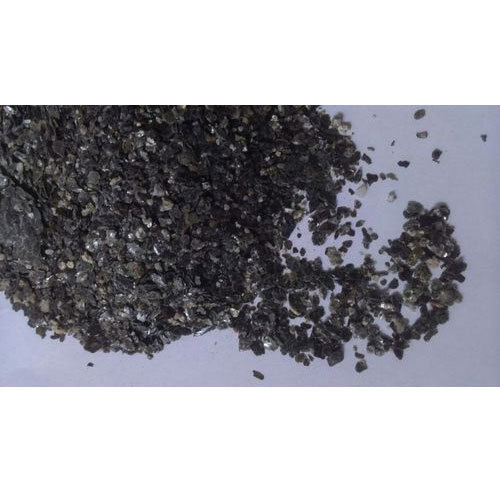
Price 35 INR/ Kilograms
- Minimum Order Quantity
- 100 Kilograms
- Supply Ability
- 10000 Kilograms Per Day
- Delivery Time
- 4-5 Days
- Main Domestic Market
- All India
- Main Export Market(s)
- Australia, South America, Middle East, Africa, Western Europe, Asia, Central America, North America

Price:
- 50
- 100
- 200
- 250
- 500
- 1000+
More Products in Industrial Chemicals Category
Iron Oxide
Price 20 INR / Kilograms
Minimum Order Quantity : 100 Kilograms
Taste : Other , Odorless, tasteless
Chemical Name : Iron(III) oxide
Purity : 99%
Type : Inorganic pigment
Calcium Carbonate Powder
Taste : Other , Tasteless
Chemical Name : Calcium Carbonate
Purity : 98%
Type : Powder
Pure Whiting Chalk Powder
Taste : Other , Chalky
Chemical Name : Calcium Carbonate
Purity : 98% Minimum
Type : Powder
Blue Iron Oxide Powder
Taste : Other , Tasteless
Chemical Name : Ferric Ferricyanide
Purity : 99%
Type : Powder


